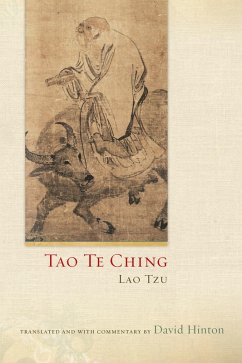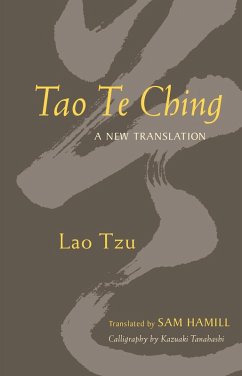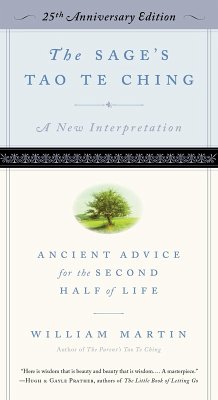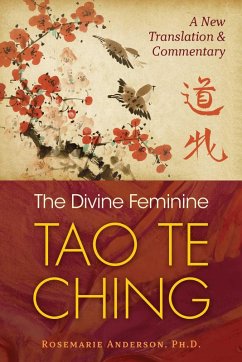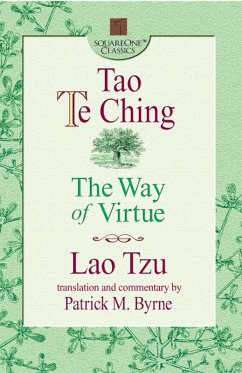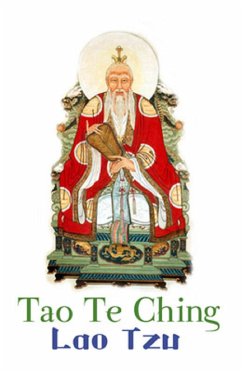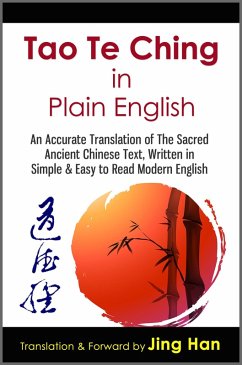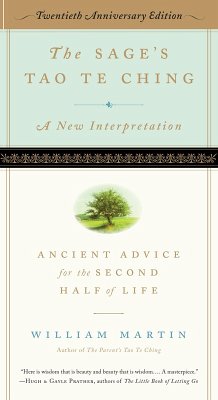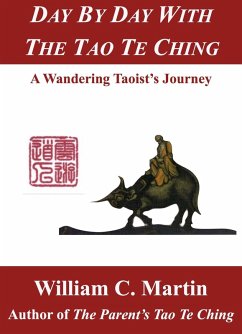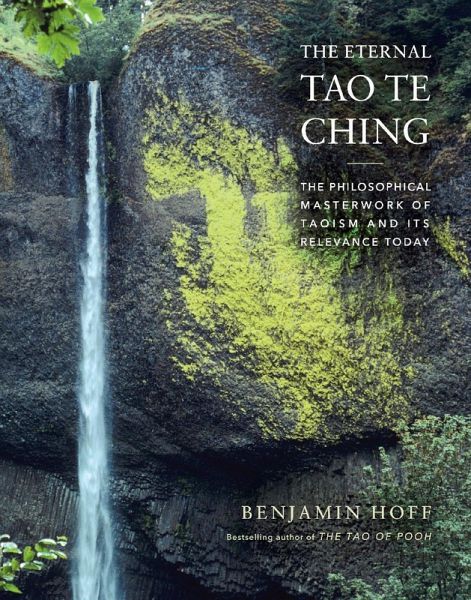
The Eternal Tao Te Ching (eBook, ePUB)
The Philosophical Masterwork of Taoism and Its Relevance Today

PAYBACK Punkte
6 °P sammeln!
The bestselling author of The Tao of Pooh offers a uniquely authentic translation of the enduring Tao Te Ching, based on the meanings of the ancient Chinese characters in use when the Taoist classic was written. From Benjamin Hoff, author of The Tao of Pooh and The Te of Piglet, which have sold millions of copies worldwide, comes The Eternal Tao Te Ching, a new translation of the Chinese philosophical classic, the Tao Te Ching. The Eternal Tao Te Ching is the first translation to employ the meanings of the pre-writing brush characters in use 2,400 years ago, when the classic was written, rathe...
The bestselling author of The Tao of Pooh offers a uniquely authentic translation of the enduring Tao Te Ching, based on the meanings of the ancient Chinese characters in use when the Taoist classic was written. From Benjamin Hoff, author of The Tao of Pooh and The Te of Piglet, which have sold millions of copies worldwide, comes The Eternal Tao Te Ching, a new translation of the Chinese philosophical classic, the Tao Te Ching. The Eternal Tao Te Ching is the first translation to employ the meanings of the pre-writing brush characters in use 2,400 years ago, when the classic was written, rather than relying on the often-different meanings of the more modern brush characters, as other translations have done. Hoff points out in his chapter notes the many incidents of meddling and muddling that have been made over the centuries by scholars and copyists, and he corrects the mistakes and removes such tampering from the text. Hoff also makes the provocative claim-and demonstrates by revealing clues in the text-that the Tao Te Ching's author was a young nobleman hiding his identity, rather than the long-alleged author, the "e;Old Master"e; of legend, Lao-tzu. And Hoff's chapter notes shed new light on the author's surprisingly modern viewpoint. With a selection of lyrical color landscape photographs by the author, this is a unique, and uniquely accessible, presentation of the Tao Te Ching.
Dieser Download kann aus rechtlichen Gründen nur mit Rechnungsadresse in A, B, BG, CY, CZ, D, DK, EW, E, FIN, F, GR, HR, H, IRL, I, LT, L, LR, M, NL, PL, P, R, S, SLO, SK ausgeliefert werden.




